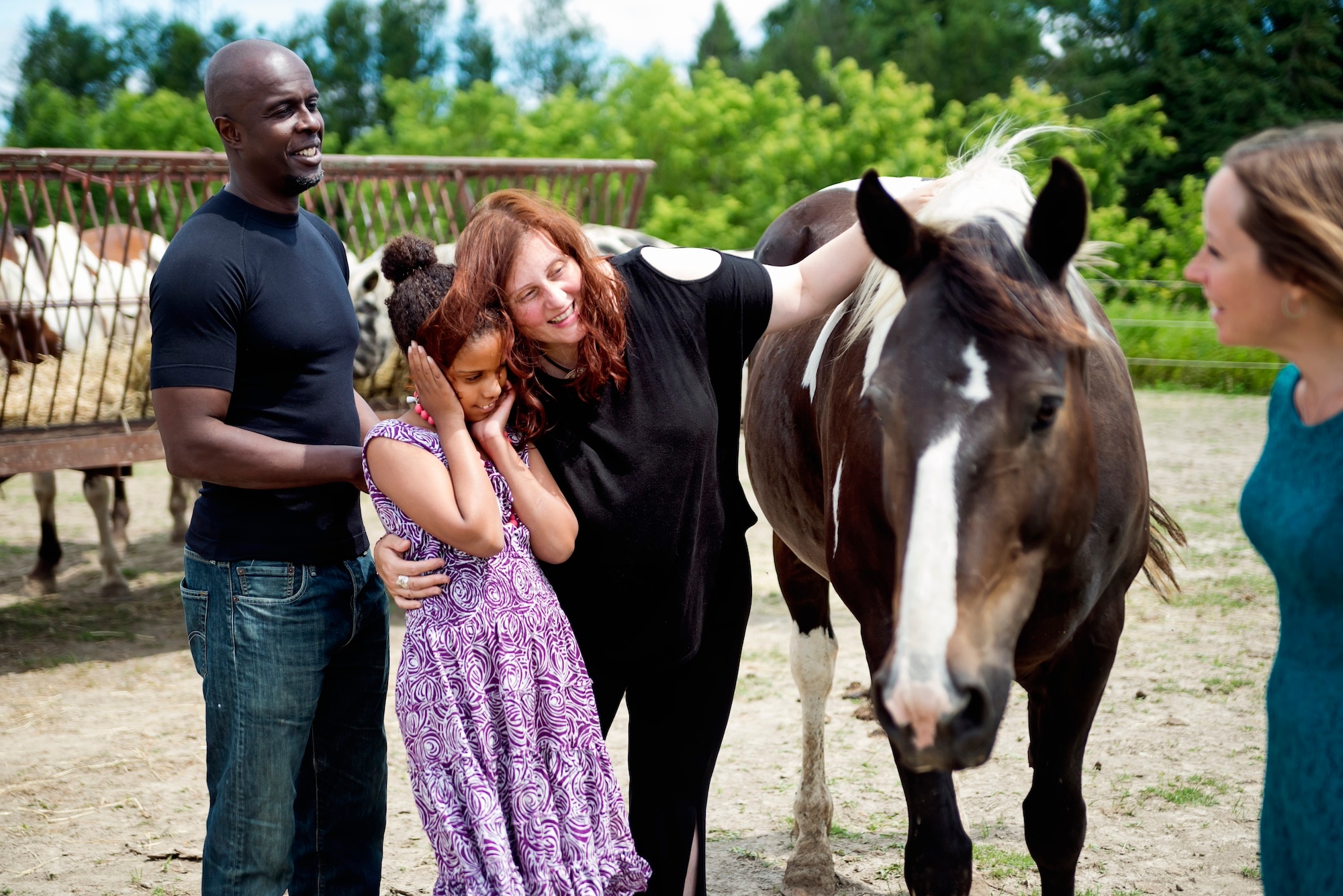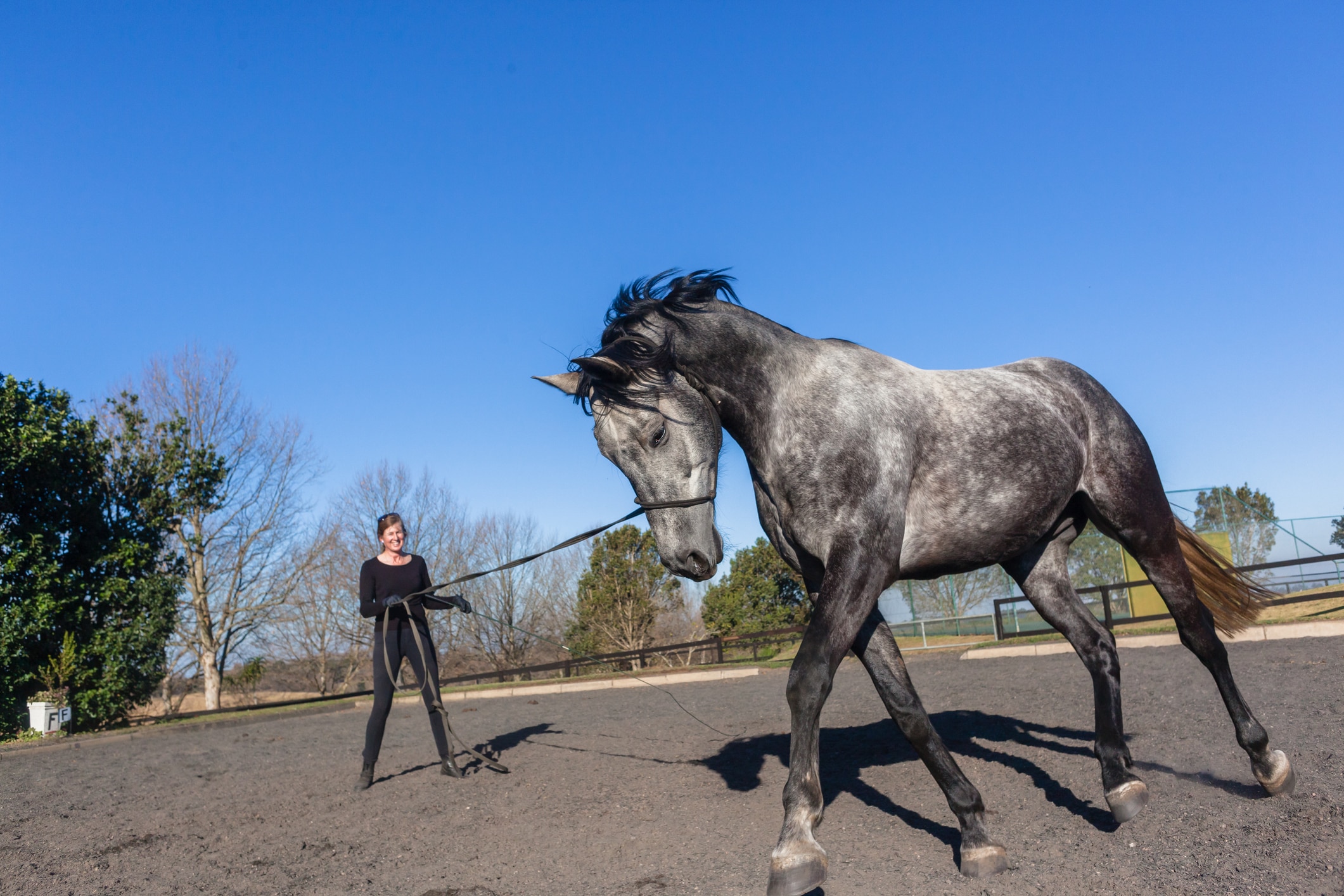Are Horses Smart?
anjajuli/iStock / Getty Images Plus via Getty Images
If you have a horse that can unlatch even the most challenging stall door, has learned to perform tricks, or knows when you’re even five minutes late with breakfast, it seems pretty natural to assume that horses are highly intelligent.
Horses can problem-solve, communicate, and learn in very distinct ways. But are horses smart? Here’s what to know about equine intelligence.
How Smart Are Horses?
Several factors contribute to what we observe as horse intelligence.
Problem-Solving
“Horses, like most animals, are better at problem-solving when they have had a more varied life, and therefore have more information and ways to respond,” says Marla Foreman, DVM, PhD, equine behavior consultant at Foreman Equestrian Arts and Science. She notes that horses can be very good problem-solvers, but while some horses really enjoy puzzles, others do not.
Part of how horses respond to puzzles depends on how they are trained, but part of that response also seems to be innate.
“A lot of training in horses is teaching them to do exactly what we tell them to and not make any choices on their own,” says Dr. Foreman. “This discourages problem-solving unless special effort is made to let them solve puzzles for food or fun in other situations, which is rarely the case, unfortunately.”
Communication Skills
According to Dr. Foreman, horses mainly communicate with body language, and they are extremely skilled in reading even slight movements or postural changes. This makes horses especially useful in therapeutic practices.
“Horses have been shown to be able to read human expressions, even with unfamiliar people, and are often more aware of the feelings or intentions of the humans around them than the humans themselves are,” she says.

Notably, horses can also adjust their communication to each situation. For example, Dr. Foreman explains that it’s been shown that horses will change how they hint for a person to get them a treat. A horse will approach a person who knows where the treats are located in one way. Then, the horse will change how they hint for a treat from a person who doesn’t know where the treats are.
Horse to human communication may use body language with bigger gestures in comparison to horse to horse communication. “When you watch the herd together, their communication is very subtle little things, like the twitch of an ear or raising the head up an inch,” says Shawna Karrasch, equine behaviorist/positive reinforcement specialist at Shawna Karrasch Equine, “I think we’ve never been taught to pay attention to those things.”
Emotional Intelligence
In the past, it wasn’t largely believed that animals had emotions. “Now science sees them as sentient beings, and I think that’s very important,” Karrasch says.
She explains that horses’ emotional intelligence is closely connected with their need for survival and safety. Herds of wild horses work together and are very cooperative. And because there’s safety in working together, cooperation is essential to horses’ survival.
Dr. Foreman adds that horses can be protective of horses who are young and have special needs, such as those who are blind. “Horses can show empathy, but it is quite variable, as it is in people,” she adds.
Training and Learning
Karrasch believes that horses’ training and learning capabilities are virtually unlimited. “I think we haven’t maximized what [horses are] capable of learning,” she says.
She notes every horse, from backyard pasture pets to Olympic-level horses, is capable of learning, but we need to pay attention to their emotions during that process.

“We need to engage them and consider their emotional state, how much they’re enjoying [the training], and respecting what they worry about—when we do that, it’s unlimited,” Karrasch says.
Dr. Foreman explains that horses learn from the consequences of their actions, and they remember their lessons for many years. Horses may be less sharp after a long break in training, depending on the skill and how it was learned.
What Is a Horse’s IQ?
IQ, which stands for intelligence quotient, is a score that identifies a person’s ability to reason. It’s calculated by a set of tests that measure a person’s skills, like the ability to solve puzzles, remember information, and more.
Because IQ is the result of tests designed for humans, there’s no way to measure the IQ of a horse or another animal. However, we can make general observations about equine intelligence.
Horses have been shown to be able to read human expressions, even with unfamiliar people, and are often more aware of the feelings or intentions of the humans around them than the humans themselves are.
Dr. Foreman explains that certain horse breeds are often considered to be more intelligent than others, and that’s often due to them being more responsive, alert, or active than other breeds.
“The variation within breeds is probably greater than between breeds and may have more to do with how varied [horses’] life experiences are than the breed,” says Foreman. “Mustangs are often considered to be very intelligent, probably due to their heritage [of being wild].”
Karrasch adds that while certain horses are perceived to be smarter than others, we’re often actually observing the horse’s responsiveness.
“I think that really, from our observation, the hotter horses like the Arabians and the Thoroughbreds tend to be more worried. I think they’re very prone to fleeing, but I don’t think that [necessarily] makes them smarter—I think it makes them quicker to establish what’s safe and what’s not.”
Why Are Horses So Smart?
“Learning lessons quickly and remembering them well was essential to survival during the evolution of horses,” explains Dr. Foreman. “Horses that did not learn where predators lurked, or footing was dangerous, and where food and water were to be found at different times of year did not survive or have offspring.”
Just as people who have more experiences generally learn faster, horses who have more varied experiences—such as more space, more activity, and other horses to interact with—will usually learn faster than horses who are raised in an environment with limited variety.
Horse Intelligence FAQs
How smart are horses compared to humans?
Karrasch notes that humans have more factors in our lives than horses. For example, humans are influenced by ego, whereas horses aren’t, so comparing the two is difficult.
How smart are horses compared to dogs?
Foreman states that it’s difficult to compare horse intelligence to dog intelligence, since horses are prey animals while dogs are predators, and the way that the species are raised is very different.
